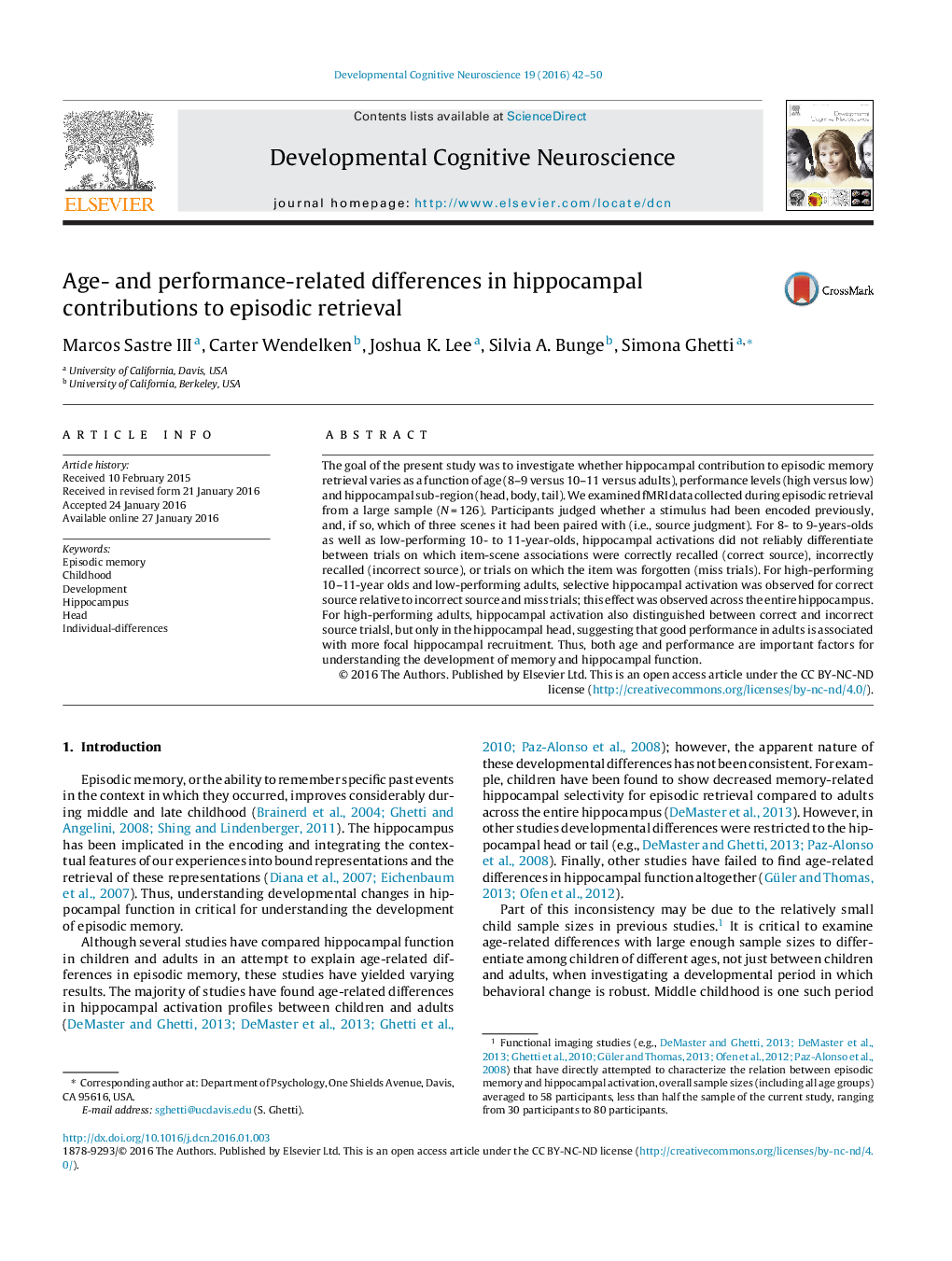| Article ID | Journal | Published Year | Pages | File Type |
|---|---|---|---|---|
| 4316433 | Developmental Cognitive Neuroscience | 2016 | 9 Pages |
•Age differences are found in hippocampal activity for source retrieval.•Performance differences are found in hippocampal activity for source retrieval.•8- to 9-year-olds do not show performance-related differences in activity.•In 10- to 11-year-olds, only high performers engaged hippocampus for source retrieval.•High performing adults engage the hippocampal head selectively.
The goal of the present study was to investigate whether hippocampal contribution to episodic memory retrieval varies as a function of age (8–9 versus 10–11 versus adults), performance levels (high versus low) and hippocampal sub-region (head, body, tail). We examined fMRI data collected during episodic retrieval from a large sample (N = 126). Participants judged whether a stimulus had been encoded previously, and, if so, which of three scenes it had been paired with (i.e., source judgment). For 8- to 9-years-olds as well as low-performing 10- to 11-year-olds, hippocampal activations did not reliably differentiate between trials on which item-scene associations were correctly recalled (correct source), incorrectly recalled (incorrect source), or trials on which the item was forgotten (miss trials). For high-performing 10–11-year olds and low-performing adults, selective hippocampal activation was observed for correct source relative to incorrect source and miss trials; this effect was observed across the entire hippocampus. For high-performing adults, hippocampal activation also distinguished between correct and incorrect source trialsl, but only in the hippocampal head, suggesting that good performance in adults is associated with more focal hippocampal recruitment. Thus, both age and performance are important factors for understanding the development of memory and hippocampal function.
